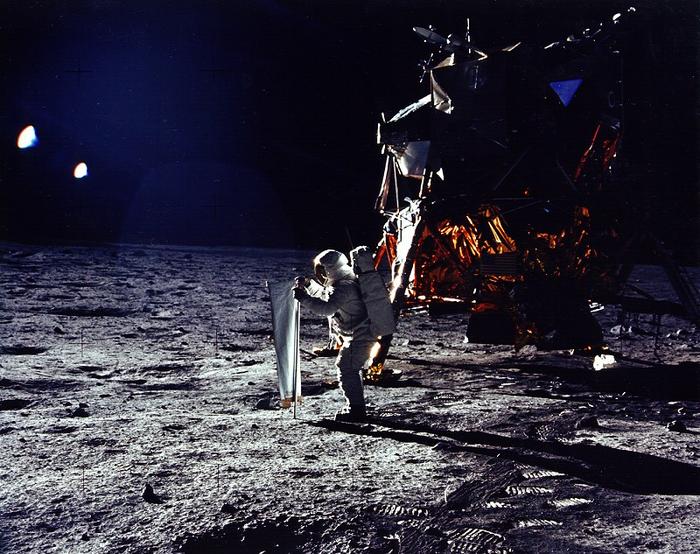Beneath the sun’s
restless stare
we sprung
curious,
boundless,
ravenous.
Our tracks,
a tangled web
across the fractured
lines of this,
our living canvas.
Tools of flint
and sparks of thought
etched our story
in stone,
and clay,
and bark.
In the furrows of farmed fields.
In the skeletons of skyscrapers.
In the choked breath
of muddied streams.
Unsated
our gaze turned skyward,
to a pearl
cast adrift
amongst the ocean
of stars.
Rocket-fuelled
ambitions
propelled us past
our pale blue dot –
on the chalky sphere,
untouched footprints
narrate our tale
amongst the ghostly echoes
of a flag,
unfurling.
The Moon,
a mirror,
reflecting our thirst
for worlds
beyond
our own.

This poem is inspired by recent research, which has suggested that it’s time to declare a new epoch on the moon, the ‘Lunar Anthropocene’.
Humans have always been explorers, venturing into new and challenging environments. From our early beginnings in Africa, we’ve spread across the entire planet, adapting to all sorts of climates and terrains. Our ability to thrive in diverse conditions is a unique aspect of being human. Throughout our history, we’ve left traces of our presence wherever we go – from ancient tools and artwork to changes in the environment. This impact is so significant that some scientists believe we’ve started a new geological era, known as the Anthropocene, defined by human influence on Earth.
The exploration of space, particularly the Moon, is the latest chapter in this story of human expansion. The race to the Moon in the mid-20th century marked the beginning of our journey beyond Earth. Just like on Earth, we’ve left our mark on the Moon. There are now footprints, equipment from lunar missions, and even craters caused by spacecraft. These traces are not just historical artefacts; they represent a significant human impact on an entirely new environment. As space travel becomes more common, with private companies planning tourism and mining operations on the Moon, it’s time to consider if we’ve started a new era on the Moon – a ‘Lunar Anthropocene’. This concept suggests that just as we’ve deeply affected the Earth, our influence is now extending to other celestial bodies.